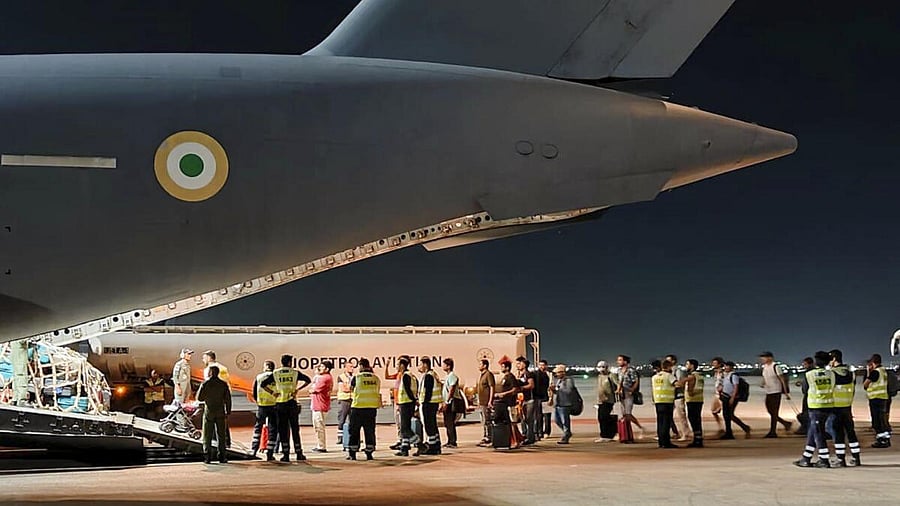
Evacuation operation for Indian nationals
Credit: PTI Photo
Srinagar: For many Kashmiri students, the recent evacuation by the government of India from war-hit Iran wasn’t just a rescue—it was a revelation. A moment that quietly but profoundly reshaped how they see their country.
In a generation often raised on alienation and uncertainty, something shifted: a fragile, yet real, sense of trust, belonging—and identity.
“When the bombs were falling, it was our embassy, our flag, our people who got us out,” says 23-year-old Aamir Hassan, who was among the hundreds of Kashmiri students stranded in Qom and later evacuated to safety. “For the first time in my life, I felt like I mattered. Like this country sees me too.”
As hostilities between Iran and Israel spiralled into a deadly 12-day war, panic gripped the Kashmiri student community in Iran—mostly enrolled in theology and medical studies. With phone networks collapsing and air raid sirens echoing through the night, they huddled in basements hoping for a miracle.
And then, that miracle came. Under Operation Sindhu, New Delhi launched a swift and strategic evacuation plan, moving students from Qom to Mashhad—over 1,000 kilometers of tense road travel—before flying them to Delhi. “Even in those terrifying nights, embassy officials stayed in constant touch. They didn’t forget us,” said Insha, a final-year medicine student. “We weren’t just evacuated—we were protected.”
For young Kashmiris who’ve grown up amid political uncertainty, security crackdowns, and an enduring sense of marginalisation, the experience was unexpected. And deeply emotional.
“I always thought if something happened to us abroad, we’d be on our own,” said Asif, another student who returned last week. “But when national institutions moved heaven and earth to bring us home, something changed in my heart. For once, I felt we belong.”
That word—belong—echoes in every conversation with the evacuees. For years, many of them have lived between identities: Kashmiri, Indian, Muslim—often feeling like they were walking a tightrope, unsure which side would hold them.
“This wasn’t about politics,” said Aamir. “This was about humanity. We weren’t seen through a lens of suspicion or region. We were seen as citizens of India in need of help.”
As students reached back home, many wept. Some kissed the ground. Most had families waiting with open arms, but the larger homecoming felt symbolic. “When we left Qom, we didn’t know if we would ever return alive. But Delhi received us as its own,” Insha said, her voice shaking.
The evacuation has left a mark deeper than what government outreach or PR campaigns could ever hope to achieve. It touched something raw, something personal. The kind of shift that comes not through speeches, but through lived experience.
Back in Kashmir now, the students are still recovering—from fear, from fatigue—but also reflecting on what this episode means for their generation.
“We’re not saying all our grievances are gone,” Aamir adds. “But something has definitely changed. When you’re rescued from death by the very system you doubted, you begin to re-evaluate everything.”
For these young Kashmiris, survival wasn’t the only thing they brought back from Iran. They returned with a renewed idea of India—flawed, complex, but maybe… theirs too.